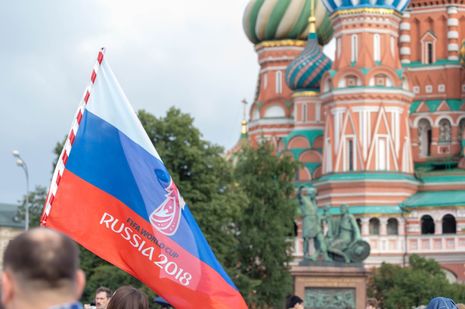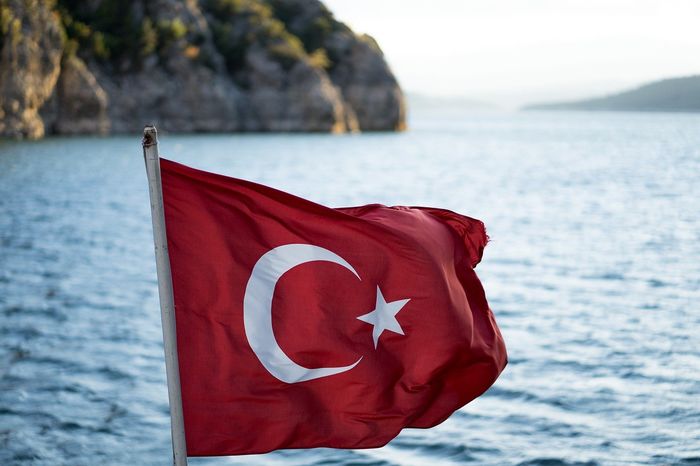Euro 2020 Dark Horses: Russia
In the penultimate article of a four-part series leading up the Euros, Liam Kline makes the case for Russia as the tournament’s dark horses this year

Dark horse
noun
- a candidate or competitor about whom little is known but who unexpectedly wins or succeeds.
Content Notice: This article contains reference to indecent footage
With two weeks until the beginning of this year’s European Championships, squad announcements are piling into the media circus, ready to face the no-nonsense judgements of football fans across the continent. Russia, however, are seemingly late to the party, yet to dwindle down their 29-man provisional squad. Although the final list will lack both surprises and superstar names, the stern temperament of Russia’s national team may compensate for these absences on the tournament’s main stage.
Before assessing the potential success of Russia’s current squad, it is worth looking at the celebrated history of Gavriil Kachalin’s dream team. Formerly known as the Soviet Union national football team, Kachalin coached the side during its greatest achievements: Olympic gold medals in 1956 and winning the inaugural European Championships in 1960, alongside quarter-final finishes in the 1958, 1962 and 1970 World Cups, as well as reaching the semi-final in 1966. Outside of Kachalin’s watchful guidance, the Soviet Union placed runners-up in both the 1964 and 1972 European Championships. The side was also armed with legendary goalkeeper Lev Yashin. Receiving the Ballon d’Or in 1963, Yashin is the only goalie ever to receive the award, as well as named posthumously to the Ballon d’Or Dream Team in 2020. Further up the pitch, Eduard Streltsov - dubbed “Russia’s Pele” - and Valentin Ivanov collected 51 goals between them over the course of 97 appearances. Despite this historical prosperity and proven international record, the current national team has failed to live up to the acclaim of its predecessors.
“...the 2018 World Cup serves as a recent memory that must not be allowed to fade”
Apart from an unexpected third-place finish in 2008, Russia has been unable to make it out of the European group stages since 1988. Meanwhile, the national side has been embroiled in controversy, notably team-captain Artem Dzyuba’s leaked indecent video and coach Stanislav Cherchesov’s not-so-decent public criticism aimed at his own players.
However, Russia’s road to European qualification gives cause for some excitement going into the tournament. Finishing second in Group I to an accomplished Belgium squad, Russia racked up eight wins from a possible ten, only conceding a single goal over the course of their victories. The side’s rigid defence consists of veterans like Yuri Zhirkov, Fyodor Kudryashov and Mario Fernandes, making the case that experience beats youth. At the other end of the field, Dzyuba’s towering presence scored nine goals in ten starts, putting him within close reach of breaking the all-time goalscoring record held by Alexsandr Kerzhakov. The squad also benefits from countrymen that ply their trade overseas: Denis Cheryshev (Valencia CF) picked up five goals and three assists in only five appearances, Alexsandr Golovin (AS Monaco) contributed one goal and two assists in a 4-0 thrashing of Scotland, while Aleksey Miranchuk (Atalanta) holds an unlocked potential that may well emerge in the summer.
“Despite misfortune against Belgium during the qualifiers, Denmark and Finland have never managed to come out on top against Russia in their past meetings”
In combination with this impressive statistical form, the 2018 World Cup serves as a recent memory that must not be allowed to fade. Despite political controversies before the competition, Russia proved to be the “perfect hosts” both on and off the pitch, making it to the quarter-finals for the first time since 1970 and defying claims of inhospitality with countless individual acts of kindness. On their dramatic journey to the final eight, Russia defeated Spain’s star-studded team in the Round of 16, shocking fans and pundits alike. The side then narrowly missed out on the tournament’s semi-finals after crashing out on penalties against eventual runners-up Croatia. With this spectacular performance, Russia revived the domestic support for its national team, as fans started to believe in their side for the first time since 2008. Although this support is beginning to wane in the face of such controversies and poor performances in the run-up to the tournament, Russia has demonstrated its giant-slaying capabilities and that the miracle of 2018 still matters, even if it is piled under some psychological rubble.
Looking ahead to the competition, Russia sits in Group B with Belgium, Denmark and Finland. Despite misfortune against Belgium during the qualifiers, Denmark and Finland have never managed to come out on top against Russia in their past meetings. Assuming that Cherchesov’s men achieve a second-place finish in their group, they will match-up in the Round of 16 with the team of equivalent standing in Group A, likely to be Switzerland, Turkey or Wales; all of which seem beatable relative to Spain’s 2018 squad. Perhaps the previous World Cup was a bout of host’s luck, nonetheless Russia has both distant and recent history on its side, along with a physically strong outfit that has proven its ability to go toe-to-toe with tournament favourites.
Star Man: Artem Dzyuba
Player to Watch: Aleksandr Golovin
Realistic Expectations: Quarter-Finals
 Comment / Plastic pubs: the problem with Cambridge alehouses 5 January 2026
Comment / Plastic pubs: the problem with Cambridge alehouses 5 January 2026 News / Cambridge academics stand out in King’s 2026 Honours List2 January 2026
News / Cambridge academics stand out in King’s 2026 Honours List2 January 2026 News / Cambridge businesses concerned infrastructure delays will hurt growth5 January 2026
News / Cambridge businesses concerned infrastructure delays will hurt growth5 January 2026 News / AstraZeneca sues for £32 million over faulty construction at Cambridge Campus31 December 2025
News / AstraZeneca sues for £32 million over faulty construction at Cambridge Campus31 December 2025 Interviews / You don’t need to peak at Cambridge, says Robin Harding31 December 2025
Interviews / You don’t need to peak at Cambridge, says Robin Harding31 December 2025











